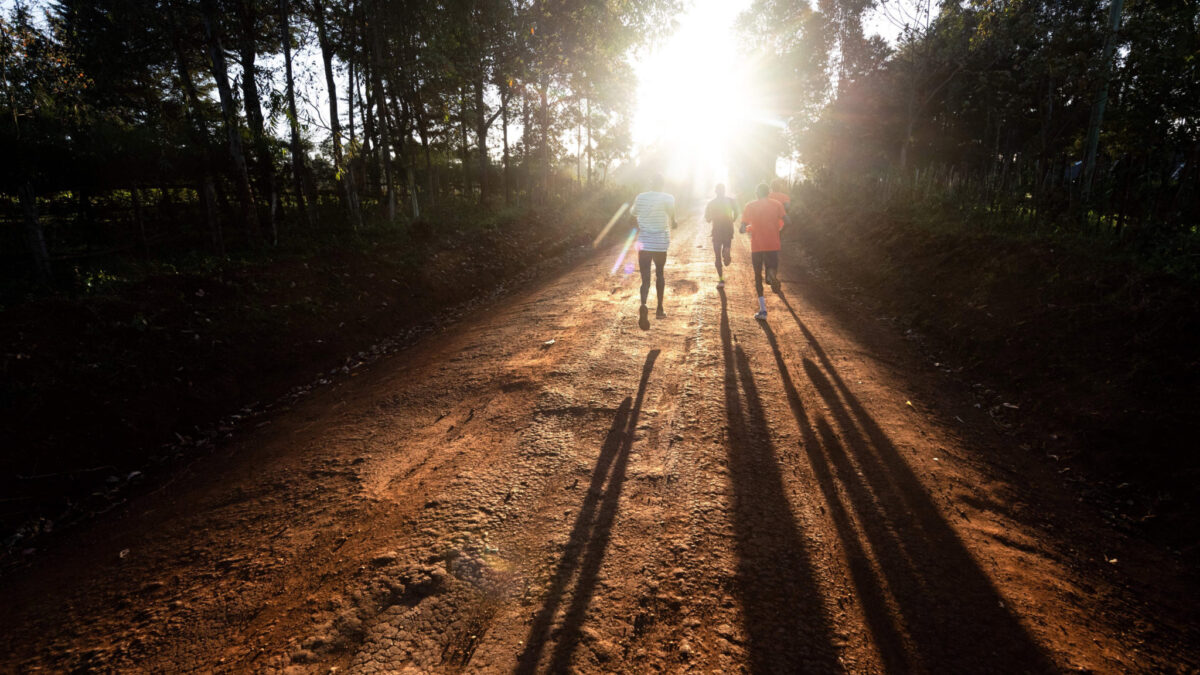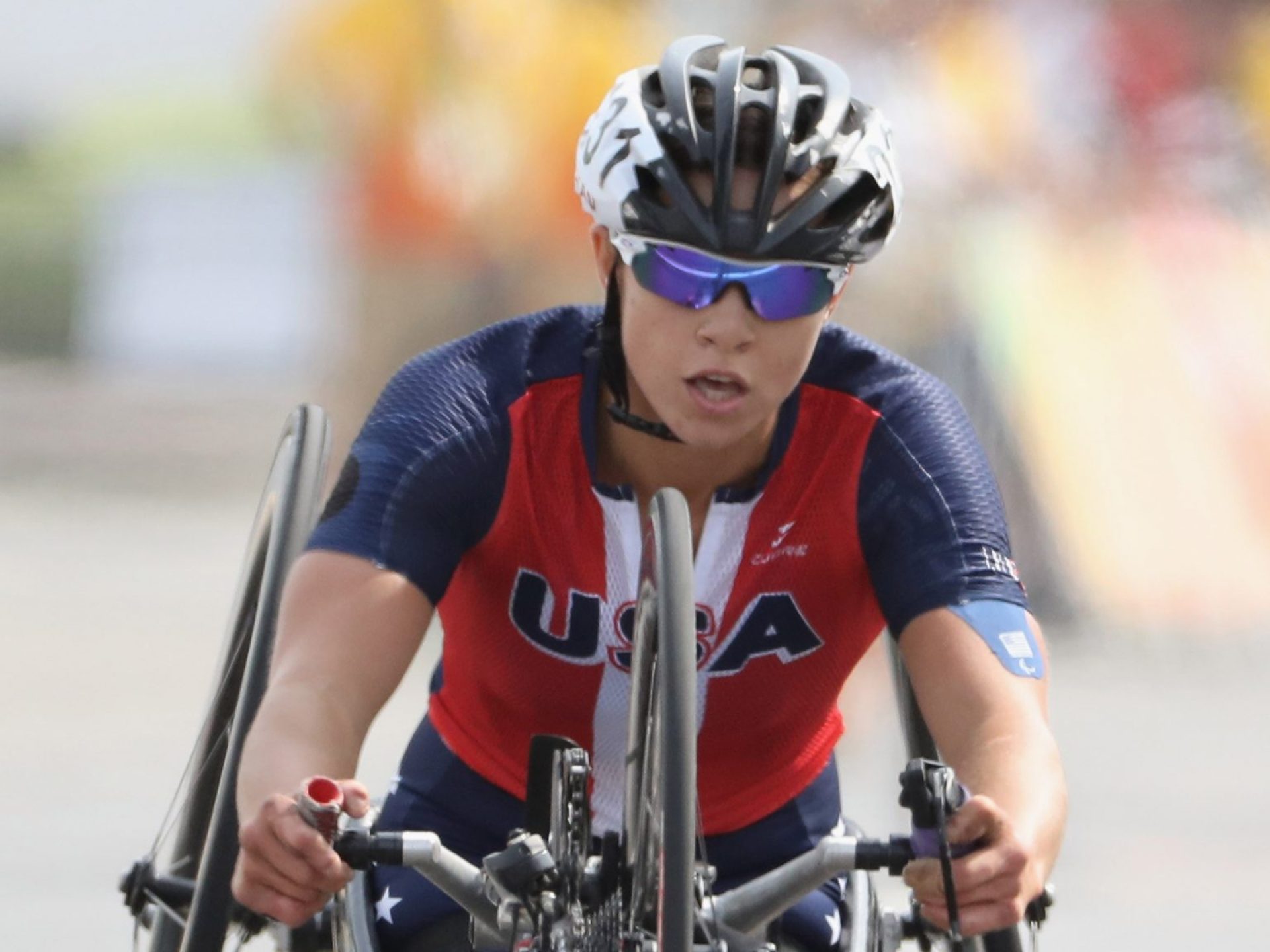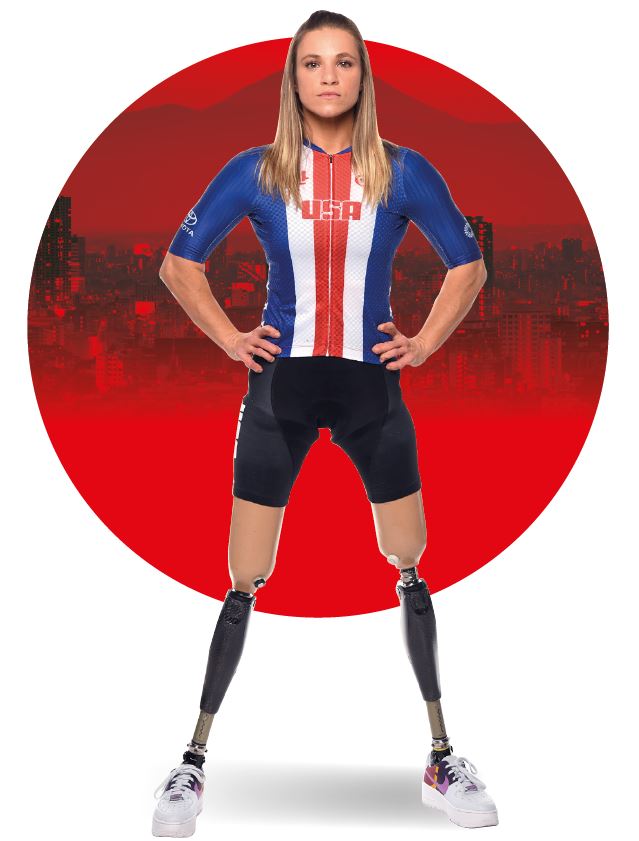Magazine

April 23, 2020

This story was originally published in Populous Magazine, our biannual publication featuring news and trends from the worlds of sport, entertainment, and major public events. Find out more, and sign up to receive a free copy, here.
Saved from a childhood in orphanages, Oksana Masters is now a para-athlete in three different sports. At Tokyo this year, she could well add to her eight Paralympic medals.
If a Hollywood studio hasn’t already optioned Oksana Masters’s life story for a movie, then you can guarantee one soon will. Nuclear disaster, disabilities, Dickensian orphanages, amputations, risqué photo shoots and Paralympic medals… it’s a script that virtually writes itself.
Now an eight-time Paralympic medallist, Oksana survived the toughest of childhoods. Born in the Ukraine three years after the Chernobyl nuclear disaster, she was exposed to radiation while in the womb, leaving her with damaged limbs and organs, and multiple disabilities. “As a kid, I was going to see if I glow in the dark; what kind of superpowers I have,” she remembers.
Her mother, unable to give her the medical help she needed, put her up for adoption, so that Oksana spent seven years in Ukrainian orphanages where she says she was often underfed, sometimes physically abused. Eventually she was adopted by an American woman, Gay Masters, and taken to live in the United States. At the time she stood well under a metre in height (just 37 inches) and weighed only 16kgs (36lbs). “I was literally starving to death,” she says. “I was not expected to live long at all.”
In an attempt to alleviate her disabilities, doctors decided to amputate first her left leg, then four years later her right. She also underwent operations on her hands.

Despite the obvious trauma, Oksana adapted well to her prosthetic legs. Shortly before losing her right leg, she discovered the sport of adaptive rowing. “When I was on the water, I began to feel a new sense of freedom and control that was taken from me so many times throughout my past,” she remembers of this period. “I found out quickly, the more I pushed myself, the stronger, faster and more in control I become. My body responded to the pain with ever-increasing strength and purpose. I pushed the water and it pushed back.”
By 2012, Oksana was among the world’s best rowers, winning a bronze medal at the London Paralympics. But there were other sports she wanted to excel in. Next she tried cross-country skiing, then biathlon, then hand-cycling; and she was successful in all of them, winning seven further Paralympic medals in 2014 and 2018. In Tokyo next year she hopes to compete in hand cycling events.
“I think one of the reasons I fell in love with sports was because it was a way for me to heal myself,” she told online magazine Bustle. “It was a way for me to heal myself and do a lot of self-growth. I can’t imagine my life without it. I don’t want to say it saved my life, but I definitely felt it gave me some kind of purpose.”
"I struggled a lot with my self-confidence..."
Sport has also enabled Oksana to become comfortable with her body image. “I struggled a lot with my self-confidence as a girl,” she said in a recent BBC interview. “It’s the end of the world if you’re having a bad hair day or you have a pimple on your face for a school picture day, let alone add prosthetic legs and hands which are hard to cover up. It’s definitely challenging.”
She hopes her success, and the inevitable publicity it garners, will help normalise the image of para-athletes and the sports they compete in.
Back as a teenager, she remembers how kids all over America would pin posters of basketballer Michael Jordan on their bedroom walls. She wonders whether kids will one day have posters of para-athletes as well.
“Why can’t that be such a normal thing for someone who has an accident or was born with a disability. It’s just a term that society [uses] for everybody who looks different.”
Lorem ipsum dolor sit amet consectetur, adipisicing elit. Non facere corporis et expedita sit nam amet aut necessitatibus at dolore enim quis impedit eius libero, harum tempore laboriosam dolor cumque.
Lorem, ipsum dolor sit amet consectetur adipisicing elit. Illo temporibus vero veritatis eveniet, placeat dolorem sunt at provident tenetur omnis, dicta exercitationem. Expedita quod aspernatur molestias eum? Totam, incidunt quos.